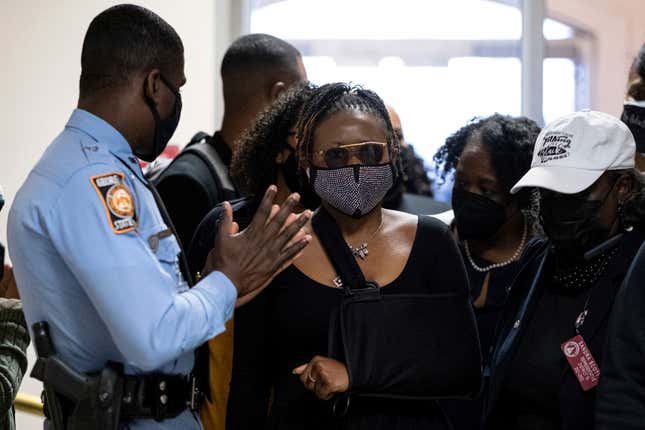
Georgia State Rep. Park Cannon will not be facing eight years in prison after all, in the newest development in the absurd criminal case brought against her.
On Mar. 25, Georgia state troopers arrested Cannon for the apparent crime of knocking on the white governor’s door while he was signing a law to make it harder for Black people in the state to vote.
On Wednesday, Fulton County District Attorney Fani Willis revealed that her office has investigated the criminal matter against Cannon and, having reviewed all the evidence, she has decided to close the case.
From the District Attorney’s statement, as shared by WSB-TV:
While some of Representative Cannon’s colleagues and the police officers involved may have found her behavior annoying, such sentiment does not justify a presentment to a grand jury of the allegations in the arrest warrants or any other felony charges.
Indeed.
As you’ll remember, Cannon’s arrest was captured in a Facebook Live video which shows that the representative was put in cuffs by two officers after simply knocking a door to a room in the state legislature where Georgia Gov. Kemp was celebrating a new voter suppression law.
Cannon was subsequently charged with two felonies—obstruction of law enforcement and preventing or disrupting a general assembly session—and could have been sentenced to several years in prison if convicted.
Her attorney, Gerald A. Griggs, on Wednesday welcomed the district attorney’s decision to close out the case, but in a statement suggested that more may come in response to the outrageous treatment meted out to his client—an elected official—in the place where she works.
“Facts and evidence showed to the world that [Cannon] committed no crime and should not have ever been arrested,” said Griggs. “We thank the district attorney for her thorough review of the evidence and are weighing our next legal actions.”
“We plan to speak publicly very soon about our next steps,” Griggs told the Associated Press.
Cannon, a Black woman, has previously described her arrest as a terrifying and traumatic experience.
The 98-page voter restriction legislation at the center of the incident continues to elicit opposition from several corners, and its provisions include moving election powers from the secretary of the state to the state legislature, limiting people’s ability to absentee vote and making it a crime to hand out water or food to voters in line.

